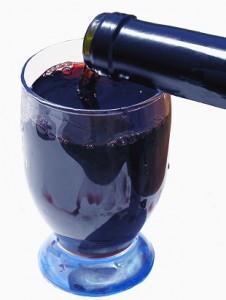
Your liver is a vital organ that is essential for health – and for survival. Drinking to excess can injure and eventually destroy your liver.
Wine and Cheese May Be a Particularly Toxic Combination
Drinking too much over a period of years is even more deadly than smoking. Alcohol can damage your brain, liver, digestive system, and other body systems. A recent study found that death rates were twice as high for alcohol-dependent men and almost five times as high for alcohol-dependent women, compared to the general population. Some studies have found small amounts of alcoholic drinks to be protective of heart health, although this may be due to beneficial phytochemicals in the plants the drinks were made from.
You should consult your physician to determine the amount of alcohol (if any) it’s best to set your limits at. The information in this article is educational and not intended to tell you whether you should drink or (if you do) how much; only a licensed health care professional who is familiar with your health history can do that.
Whatever your choice on consuming alcohol, you should know that that animal foods, such as meat and cheese, may boost the normal dangers of drinking by accelerating liver damage and inflammation. Even if you never consume alcohol, these animal foods may harm your liver, with a result similar to the effects of drinking.
Your liver is super at multi-tasking. This large organ filters and stores blood and forms key blood cells, is critical to metabolizing food and hormones, detoxifies drugs and chemicals, manufactures bile for digestion, and stockpiles vitamins and iron. You need a high-functioning liver for optimal health.
You may already be aware that alcohol can injure your liver, sometimes to the point where the damage is fatal over time. Here are six ways that mixing animal foods with alcohol may make that liver injury worse. Or you can look at it that alcohol is making the effects of animal foods more toxic. However you want to think of it, the point is that meat, cheese, and alcohol don’t mix.
1. Endotoxins, which can cause destructive inflammation in your body, are poisonous substances in bacteria that are released when the bacteria

Some studies indicate that small amounts of wine are healthful. This effect may actually be due to the grapes the wine is made from.
die. Alcohol enables endotoxins in your gut to get into the bloodstream that flows to your liver, causing your liver to become inflamed. Animal foods are often dense with endotoxins, which are not destroyed by cooking. Thus, alcohol may increase the amount of meat and dairy endotoxins in your digestive system that reach and inflame your liver.
2. Fat also transports endotoxins into your body – with meat, cheese, and eggs all being high in fat.
3. Even apart from easing the passage of endotoxins, fatty acids may directly harm your liver, contributing to cell death, inflammation, the formation of scar tissue, and cirrhosis. Saturated fats – so dense in meat and cheese – are the most dangerous.
4. Meat is high in a kind of iron that your body will absorb whether you already have enough iron stored or not. Excess iron can directly damage your liver and give rise to electrically-charged free radicals, which also harm your liver. So eating iron-rich meat while drinking may result in an attack on your liver from two sources: iron and alcohol.
5. Too much cholesterol can also injure your liver – cholesterol is found only in animal foods, and even in so-called “low-fat” animal foods.
6. Liver processing of alcohol makes your body more acidic. Meat and dairy products also are metabolized in a way that will make your body more acidic. The joint effect of the intake of alcohol, meat, and dairy together is potentially even more disruptive of your body’s chemistry than each of these substances alone is.
There is overwhelming evidence that alcohol hurts your liver and that components of animal foods have a harmful effect on your liver. Scientists should be studying more directly the effects of mixing alcohol and animal foods in people. For example, directly research whether diet makes a difference in outcome for people who choose to drink to excess. Until such studies are available, consider the facts listed above and see where the existing evidence points – the conclusions are obvious.
Whole plant foods, on the other hand, are protective. The vitamins and antioxidants so dense in vegetables, fruits, beans, and whole grains
soothe inflammation and neutralize free radicals. If you are going to drink wine anyway, why not have it with fruit, whole grain crackers, hummus, and similar whole-foods choices instead of cheese?
Even if you don’t drink, you may be part of the epidemic of non-alcoholic fatty liver disease (NAFLD), in which fat accumulates in your liver even if you drink alcohol in small amounts or not at all. Obesity significantly raises your risk of developing this condition.
NAFLD is a common condition, with up to 1 in 3 Americans afflicted. NAFLD can progress to more dangerous liver inflammation and cell death, and from there to potentially fatal cirrhosis.
Some medical literature will shrug off early fatty liver disease as fairly harmless unless it progresses. However, this widespread medical condition deserves more research by studying people that have it. It’s hard to believe that even mild injury to an organ as critical as the liver has no significant health impact. How much liver damage does it take to affect your health and longevity? The answer is that no one knows. However, your risk of dying prematurely is significantly increased if you have NAFLD.
While we are waiting for more information, remember that you get only one body per lifetime, so take care of it. Help protect your hard-working liver by saying no to animal foods and yes to whole plant foods. And see your doctor and get help right away if you suspect that you may have a problem with alcohol.
Intrigued? Now you can use our Whole Foods Blog Finder to target informative, fun postings on whole foods, plant-based diets. Quick information at no cost!
Blog posting by Janice Stanger, Ph.D. Janice authored The Perfect Formula Diet: How to Lose Weight and Get Healthy Now With Six Kinds of Whole Foods. The book describes a simple diet built on a tasty whole foods eating plan that can prevent, and even reverse, most chronic disease. Janice is wishing you the best of health and enjoyment of life for many years to come.
Tags: alcohol, antioxidants, getting healthy, liver disease, nonalcoholic fatty liver disease, nutrition facts, Plant-based nutrition, vegetables, whole foods, whole foods plant-based diet








I never really thought much about the liver until it was discovered I had elevated liver enzymes during a routine physical exam. I am 52 years old and have been following a mostly vegan diet for three years now, I exercise daily, normal weight and no other health issues, I rarely drink alcohol and do not take any medications outside of an occasional aspirin. Gastroenterologist has tested me for every liver disease known, all negative, I have had ultrasound, nothing abnormal found, and a liver biopsy showed level one fibrosis. The approach they are taking is to watch and wait. They never once asked about my diet or made any suggestions to improve my diet, but you can bet I am. The statement in your post that resonated with me was “Its hard to believe that even mild injury to an organ as critical as the liver has no significant health impact” It would be nice if I knew how or why I have elevated liver enzymes but I guess there are some things that we just don’t have answers for.